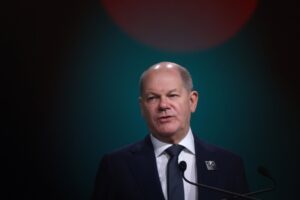TEDi sells mainly non-food items at low prices and is expected to open around a dozen shops across France in the coming months
German low-cost brand TEDi has opened its first store in France, bringing another discount shop to compete with the likes of Action and Noz.
The first store, a 900m2 space, opened at the Carrefour Grand Évreux in Eure – north-west of Paris – on Wednesday (April 26).
Another one is set to open in Bruay-la-Buissière (Pas-de-Calais) on Saturday (April 29), with around a dozen others to follow around the country in the coming months.
One woman, who was among the first customers to the new shop in Évreux, told Le Parisien: “We regularly go to Action, but they often have the same things. Here, whether it’s candles or children’s games, it seems that the selection is much larger. They also have a lot of things that are €1 or €2.”
The store includes aisles dedicated to drawing and at-home crafts, party supplies, office items, and DIY. There are also some snack aisles and pet supplies. However, apart from Coca-Cola, Fanta, and Haribo, there are few major brands.
Much of the packaging is in German, due to the low-cost nature of the operation.
The management appeared to be happy with the initial response in France. The TEDi France director, who came to the group after 24 years at German discount supermarket Aldi, said: “For an opening that was almost without any marketing, it was a frank success.”
The German brand operates in the same market as competitors Action and Noz, as well as Max Plus, Foir’Fouille, and Stokomani.
However, the director said: “There’s no way we will destroy the local competition. Action is like a ‘big brother’ to us. Each one brings in clients and we’ll both benefit. France is a major country of consumers, so we won’t stop [at only a few stores].”
The group has 2,800 stores across 10 European countries, including 1,800 in Germany. It launched its first shop in Germany in 2004.
It comes after Action was voted France’s favourite brand for the first time, in the annual study published by EY Parthenon. The group attributed this success to “this hyper-inflationary period…the search for good deals [and] the shift towards cheaper products”.
Source : Connexion France









